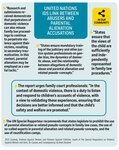
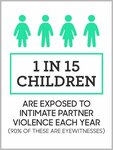

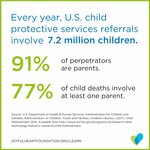
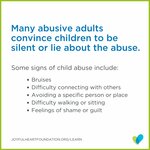
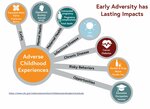
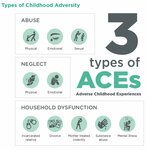
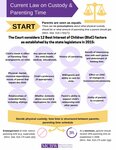


She lived in Minnesota for only five months and her daughter was born in Iowa, but Dani* has been dragged into family court in Minnesota nearly every one of the past 11 years by her ex-boyfriend.
She’s been trying to figure out what happened and why things have gotten worse instead of better.
She did what everyone tells women to do when they’re being abused. She left.
She fled back home to Iowa when she was six weeks pregnant, determined to raise her baby in a violence-and-alcohol-free environment with the help of her family.
And then, before her daughter had even been born, Dani found herself in family court. Her ex-boyfriend had filed for custody of their unborn child two months before her due date.
She filed herself in Iowa then, but Sherburne County Judge Mary Yunker, the same one who presided over the controversial Autumn Hallow case, ruled that the case be in Minnesota instead of Iowa. (Autumn Hallow was murdered by her father and step-mother despite repeated abuse reports and attempts by her mother in Yunker’s courtroom to protect her.)
Today, neither party resides in Sherburne County, Judge Yunker retired in November 2022, and Dani has asked repeatedly to have the case moved to the state where her daughter has lived her entire life. But it remains in Minnesota.
Dani finds herself stuck between two states. Iowa begins investigations, but is then told by Minnesota that it will follow through on them. Instead, the issues dealt with in Minnesota are in regards to the latest motions filed by her ex-boyfriend Bryan.
“The nightmare doesn’t exist until you’re in it,” said Dani. “And then no one wants to talk about it.”
FROM A DREAM TO A NIGHTMARE
Only 23 when she met Bryan*, Dani thought she had fallen into a love story. He was charming, it moved fast, and within a few months of meeting him in Des Moines, Iowa, she had agreed to move to Elk River, Minn. “I thought he was the answer to my prayers when I met him. And then I thought there was something wrong with me,” she said.
“After I moved, his personality changed really quickly from a nice man to my worst nightmare.” He drank excessively, she recalled, and on more than one occasion she called her mom while she was hiding from him in a bathroom. Her mom recalls hearing him swear and yell at Dani while pounding on the closed door. She told her mom, “I’m afraid he’s going to hurt me.” When her mom visited, she saw how much alcohol he drank. “He had the potential for violence,” Cindy* recalled. “I saw the amount he consumed.” He coerced Dani into doing things she didn’t want to do in the bedroom. He destroyed things her biological dad left after he died. He changed her phone password. She had to dash out of the way one day when he directed his vehicle at her in the yard. He threatened the life of her dog.
But she never called the police. Not even when he somehow sold her car without her signature. It left her even more isolated, far from home and her family. But he didn’t ever punch her. Instead, he broke the things around her, throwing bottles at the door when he raged at her. When she threatened to call the police, he said he’d have them lock her up. When she said she was going to leave, he retorted that he’d report the car she was in as stolen. He wanted her tested for Borderline Personality Disorder and told her she was crazy.
Later, others gave her the words to describe the experience. Abusive. Coercive. Controlling. Gaslighting. Manipulative. Narcissistic. Friends began to suspect that he might have a personality disorder.
“I feel so bad for that version of me,” Dani said. “I know I tried to stand up to him, but I never stood a chance. He had the money. He had everything. He knew that by moving me to Minnesota, he was moving me from my support system and anyone who would help me. And then he’d call me the crazy one.”
Then she discovered she was pregnant. She opted not to get the abortion he suggested, and when he said they were through, she got him to put in writing that she could drive the car that was in his name and she headed back to Iowa.
She didn’t know what was in front of her. “He uses the court system to terrorize me,” said Dani. “I’ve never had a break.”
“It’s a form of control,” pointed out her mother.
Cindy added, “He’s a master gaslighter. You don’t even know how to defend it. He’ll put anything in an affidavit.
“His biggest go-to is, ‘Dani are you of sound mind? Do you need to speak to a professional?’”
IN COURT BEFORE THE BABY IS BORN
Bryan kept calling her when he was drunk, yelling and screaming at her every day over the phone line. It took her awhile, she said, but she finally blocked his calls. Later, he used that to show she was refusing to co-parent.
On March 14, 2012, Bryan filed a pre-birth petition in Minnesota seeking to establish paternity, custody, and parenting time for the unborn child. Dani counter-filed in Iowa, but citing provisions of Iowa’s version of the Uniform Child Custody Jurisdiction and Enforcement Act (UCCJEA), the case was placed in Minnesota. Dani’s appeal was heard in Minnesota and they affirmed keeping the case in Minnesota. Despite mother and child living in another state, the Minnesota court said it would not be an “inconvenient forum.” The ruling didn’t address how the poor, young woman would find representation in another state, afford to take off work to drive five hours one way to attend hearings, or find lodging in another state. Nor did it lay out how Twin Cities-based court professionals would manage working on a case where almost all the people they needed to talk to and visit were in another state.
Bryan didn’t meet his daughter, Faith*, until she was eight months old, although he was notified right away of her birth. He had given up a child for adoption 1.5 years earlier. “I begged him to come meet his daughter whom he was in court fighting for,” said Dani.
“We all tried to be very supportive of Faith’s relationship with her dad,” said Cindy. The early visits happened at their home, where Dani lived for a few years, and were at a hotel when they included Bryan’s parents.
On Dec. 11, 2014, the Minnesota court granted the parties joint legal custody, with sole physical care to Dani subject to parenting time for Bryan following a custody evaluation by Minneapolis psychologist Susan Phipps-Yonas. She recommended that Dani have sole physical custody to maintain continuity for two-year-old Faith, whose life was in Iowa, and that the parents share legal custody.
Bryan has some relatives in Iowa, and exercised parenting time there when Faith was young, although he was often hours late. He’s never attended a doctors appointment, school conference, school play, recital or other event. However, his brother and his father have. “I think that’s really telling,” said Cindy.
A second custody evaluation was done after Bryan again filed for sole custody in 2020 when Faith was eight. Again, the custody evaluator, this time Kareem S. Braxton of Minneapolis, affirmed that the parents share joint legal custody and that Dani have sole physical custody.
FIRST CHILD ABUSE CASE AGAINST DAD
Things changed quickly after they acted on that report through mediation in the fall of October 2021.
After she visited her dad, his wife, and two younger step-siblings for Christmas in 2021, Faith began saying she didn’t want to go back to her dad’s house in Minnesota. She was supposed to visit one weekend a month, and her dad was court-ordered to plan those visits ahead of time by the first of each month. He had done so in November and December 2021, but then canceled last minute before exercising his holiday time.
In January 2022, there was a bad snowstorm that prevented the visit. In February, Faith was vomiting and Dani asked that the visit be rescheduled to avoid putting a vomiting child in the car for a five-hour drive. In March, Bryan’s weekend overlapped with spring break, which was Dani’s holiday and took precedence. They had been using a family text message thread that included Dani’s parents and Bryan’s parents to keep conversations civil, but after Bryan engaged in abusive language directed separately at Dani, her step-dad and her mom, Dani stated that she would be using the court-ordered Our Family Wizard app for all future correspondence. Bryan did not check his messages there.
“The messages that have come through to Dani are generally negative, accusatory and not demonstrative of mutual respect for Dani as the other parent. [Bryan] has expressed frequent concern about Dani’s ability or fitness to parent, and there has not been evidence that Dani is not a fit parent,” wrote Dani’s therapist Marcy Schrum in an August 2022 report.
Meanwhile, Faith had begun having night terrors.
Dani was stymied in her attempt to get Faith therapeutic treatment. Bryan spoke to his daughter’s therapist via telephone, and stated that he wanted her to record all conversations with his daughter and send them to him, which the therapist was not comfortable doing and did not believe was appropriate. Per court testimony, he also told the therapist that he did not agree to let his daughter be in treatment.
In April 2022, the Iowa Department of Human Services got involved and concluded that dad caused a denial of critical care for his daughter. A Child In Need of Assistance (CINA) case was opened. Bryan was placed on the Central Abuse Registry. Faith resumed therapy.
“Faith was very good at articulating what was bothering her, but she got to the point where she would start crying and shut down, and she would not disclose anything further. I do believe she has more to say, but she was unable to disclose at that point,” wrote DHS investigator Jean Entz in her report. Entz made it clear that Faith did not want to see her dad and that Dani struggled with being in the position of following the court order or trying to figure out how to force Faith into the car to see him.
Bryan did not request parenting time for May, June, July, or August 2022.
Faith’s school counselor reported to a child protection worker that Faith had talked about concerns at her dad’s house and did not want to visit him there. There have been concerns about how Bryan has interacted with school staff, and now only administrators will speak to him.
Faith’s therapist noted that Bryan had called her an excessive amount of times, and described Bryan as “aggressive and rude.”
However, his interactions with his child’s school, therapist and maternal grandparents has not been factored into the case by the various professionals making recommendations on custody and parenting time. The fact that Bryan makes adults uncomfortable has not been considered relevant to how he treats his daughter. This is despite specific language in court orders (commonly known as Appendix A in Minnesota divorce decrees) that neither parent disparage the other.
When interviewed by a child protection worker, Bryan blamed Dani for problems with his daughter, and denied that he had done anything inappropriate, according to the written report issued by DHS. Notably, he did not express concern about his daughter’s mental or physical health. Meanwhile, Dani, who grew up with divorced parents, affirmed the position she has taken throughout Faith’s life – that a relationship with her father is important. She also asked about resources available to help the family.
SECOND ABUSE INVESTIGATION
In June, Faith’s therapist, Kim Montgomery, noted that she was showing signs of a child who had been sexually abused. She had told multiple people after the Christmas visit that her dad locked her in her room and body-shamed her.
As the days got closer to when she was court-ordered to see her dad in September, Faith began disclosing more information about her past experiences with her dad to those around her whom she has established relationships with. Her mom. Her maternal grandmother. Her school counselor. Her therapist (until treatment was stopped by Minneapolis-based parenting consultant Susan Lach following a conversation she had only with Bryan).
According to court documents, Faith told her grandmother Cindy that her dad had threatened to kill her mom and her if she told anyone what her dad had been doing to her. Once he stomped his foot on an ant, grinding his foot into it, to demonstrate what he would do to her if she told the secret.
Another child protection assessment began. Bryan declined to participate in any CPS interviews, although his Minnesota attorney, Katie Jendro, called to talk about dad seeking sole custody of Faith and requesting that the court approve him moving Faith to Minnesota. Dani cooperated fully with all CPS requests.
The child protection investigation in Iowa was halted because Faith broke down and could not give any more details to the STAR Center investigator. The CPS report states that because the child is not seeing dad, they did not feel like there needed to be a second STAR interview. However, they also wrote that it was imperative that ongoing discovery work be done. Despite that statement and a high risk assessment rating, the same CPS report made a finding that the sexual abuse could not be confirmed and closed the case.
“Am I to understand you sat in a room with Faith and she told you her father touched her private parts and you are going to do nothing about this?” Dani asked a CPS worker.
Since some incidents happened in Minnesota, Iowa CPS said they could not address them.
Minnesota stated that it would not look into the Iowa incidents. St. Anthony Village Police Department wouldn’t proceed because there was an open family court case, a detail they learned when Bryan’s attorney called them.
The Iowa court declined to bring back in the guardian ad litem who had worked previously with Faith.
An Iowa judge approved an order for protection that Dani made on behalf of Faith on Sept. 23, 2022. However, after Judge Yunker contacted him and insisted that he had no jurisdiction, Judge Paul Scott set it to expire in December. He observed that Dani could seek another one in Minnesota.
To do so required Dani to go through the entire process a second time, forcing her to find and hire a new Minnesota-based attorney and try to negotiate CPS workers across state lines.
A PC BROUGHT IN
A parenting consultant, known as a PC, was appointed in Minnesota last summer, but the case has not gotten clearer with her involvement.
Susan Lach of Tuft, Lach, Jerabek & O’Connell in Maplewood has not ever met Faith. Nor has she journeyed to Iowa to meet those involved in Faith’s daily life. Lach testified that she has not spoken to the child protection workers in Iowa, nor staff at the center where she was evaluated for sexual abuse.
A lawyer, Lach is neither a licensed therapist nor social worker, but her authority on the case is vast and equal to a judge. Whatever decisions she makes are considered orders and must be followed. In Minnesota, PCs are not required to have training on domestic violence, victim and perpetrator behaviors, long and short-term impacts of domestic violence and child abuse on children, child sexual abuse, child abuse, coercive control, implicit and explicit bias, or trauma. There is little oversight. (See sidebar)
Lach required $2,000 up front, and charged $500 an hour. Within a few months, she had charged the family $4,700. Currently, she says Dani owes her about $7,500.
Lach ordered that Faith discontinue work with her therapist and instead begin seeing a therapist in Minnesota. She also recommended a custody flip – moving Faith from Iowa where she has lived her entire life to Minnesota, changing her school, taking her away from the family and friends she has had her entire life, and switching all her medical providers. She testified: “I don’t think Faith cares where she lives. I mean, what does where she’s lived her entire life have to do with where she gets therapy?”
Lach has opined that Faith was “coached” by her mother to make allegations against her dad – despite never having talked to Faith herself. Hearings have focused on Dani’s credibility versus the facts of the case and Faith’s safety. Lach did not respond to a list of questions about her work as a PC.
ISSUES WITH PC
Lach accused Faith’s therapist of picking sides and said she could not be impartial in her treatment. Statements made to the court by Montgomery, however, focus on listening to the child, and helping her work through things.
Lach’s testimony includes the following statement in reference to Montgomery, who is a school-based therapist with a master’s degree in social work: “It doesn’t look like she has any qualifications to be doing this at all.”
Cindy said she was alarmed when she testified in Yunker’s courtroom by the behavior of the people working there. “In my 23 years of working in a courtroom, I have never seen a judge behave this way,” stated Cindy. “She was so unprofessional. She’d look down at me and make a face and roll her eyes. She said, ‘That wasn’t the question. Do you need it repeated for you?’ It really affected my testimony.” Plus, “she would make the objection and prompt Bryan’s attorney, ‘Do you want to object?’” She said Yunker interrupted people.
“It’s like you’re embarrassed to be part of that community,” said Cindy. “I have never seen anything like it.”
Dani’s mother and stepfather have worked in the court system their entire lives. Neither understands what is happening in their daughter’s case. They’re losing sleep. Their health has been affected.
‘It’s surreal,” said Cindy. “It’s like you can’t believe this is happening.”
Her own professional work involved writing the court transcripts for many DHS cases of abuse. “This is the most alarming case I have ever seen. I can’t believe they can look at themselves and say this child doesn’t deserve to be helped,” said Cindy.
“You don’t just up and move a 10-year-old child,” said Dani. “Why would you be willing to roll the dice that big? It’s unbelievable to me.”
AN ORDER FOR PROTECTION
One judge approved the order for protection (OFP). Another required that she drop it.
An OFP was granted in Iowa on Sept. 23, 2022.
Judge Yunker, who is facing a lawsuit for her role in the Autumn Hallow case, retired on Nov. 15, 2022 – but not before issuing a scathing order with hefty purge conditions for Dani. Among them? An order to pay $160,000 in fines and drop the OFP.
Additional sanctions aimed to financially target this single mom who is on government health care, per Yunker’s court order, include the issuance of a $100,000 bond. Dani was ordered to pay Bryan’s attorney’s fees and a fine of $200 for every day Faith did not visit her dad since Oct. 29, 2022. The order concludes: Dani “is expressly warned future willful failure to comply with the orders of this court may result in incarceration.”
Judge Yunker’s order did not address the pages of abusive messages that Bryan had sent Dani and her parents.
PREDICTABLE ARC
Those with the National Safe Parents Organization say cases like Dani’s follow a predictable arc, one that is backed by research.
When a abuse is brought up in family court, 73 percent of moms lose custody if they’ve been labeled an “alienator” – even when the courts believe that the father has abused the mother and/or child. If that abuse is sexual abuse, then a mom loses custody 97 percent of the time if a dad counters that the mom is alienating him from his child. This research was done by the Joan Meiers team out of Georgetown University, and was funded by a $500,000 grant from the National Institute of Justice.
Domestic abuse advocates are increasingly talking about how abusers successfully use DARVO in the family court system. DARVO – which stands for deny, attack, reverse victim and offender – is a reaction perpetrators of wrong may display when being held accountable for their behavior, and has been studied by Dr. Jennifer Freyd of the University of Oregon. In assuming the role of victim, the perpetrator attacks the accuser’s credibility. In family court, this is often done by accusing the protective parent of being an “alienator” and accusing them of “crazy” behavior.
“While gaslighting in the context of an abusive relationship is destabilizing and painful, nothing can prepare a survivor for the gaslighting that takes place in family court,” observed national advocate Tina Swithin of One Mom’s Battle, who is a member of the National Safe Parents Organization. “Worse, the court professionals often want survivors to gaslight their children by forcing them to encourage and facilitate a relationship with a parent, who may be very unhealthy or abusive. We are teaching our children to override their instincts and truth because we are in a court system that believes relationships with both parents trumps everything else.”
The United Nations has recently released a report on the link of parental alienation and domestic violence. (See below) “Research and submissions received demonstrate that perpetrators of domestic violence can also misuse family law proceedings to continue to perpetrate violence against their victims, resulting in secondary traumatization,” reads the report. “In this context, parental alienation may be employed as a useful tactic.”
The report urges family court professionals: “In the context of domestic violence, there is a duty to listen and respond to children’s accounts of violence, with a view to validating these experiences, ensuring that decisions are better informed and that the child’s safety and welfare are promoted.”
The UN Special Rapporteur recommends that states legislate to prohibit the use of parental alienation or related pseudo-concepts in family law cases, the use of so-called experts in parental alienation and related pseudo-concepts, and the use of reunification camps. Colorado is the first to do this with the passage of a new law in May. The UN also urges states to mandate training on gender bias, dynamics of domestic abuse, and the relationship between allegations of domestic abuse and parental alienation.
‘SHE JUST WANTS TO BE HEARD’
In late May 2023, Dani was ordered by her 10th Judicial Court Judge Kristi Stanislawski to pay the entire PC bill and related bond fees of $7,500 within three days or go to jail. She has also been ordered to appear in Minnesota in person for court one time a month.
An child protection case remains open in Iowa. Faith is not currently seeing a therapist because the PC has stated she needs to be the one to pick one out.
Dani points to a notebook on her desk. “This whole notebook is filled with numbers of people I’ve tried to call for help. No one will listen. No one will help,” she said.
“I don’t trust the system anymore. I don’t know why everyone wouldn’t err on the side of caution. When children are involved, safety should be your first priority. I guess I’m really confused.
“You can’t look at that little girl and not know that she’s telling the truth. She’s so scared. She just wants to be heard.”
*Editor’s note: In writing this story, I reviewed dozens of court documents, and reports by professionals. In recognition of the sensitive nature of this article, we have opted to refer to people by their first names or aliases. We have named the professionals working on this case as their work affects other families.
Read more in the Voices Against Family Violence series here.
Read related story about Judge Yunker case in Sherburne County about Autumn Hallow here.
Comments
No comments on this item Please log in to comment by clicking here